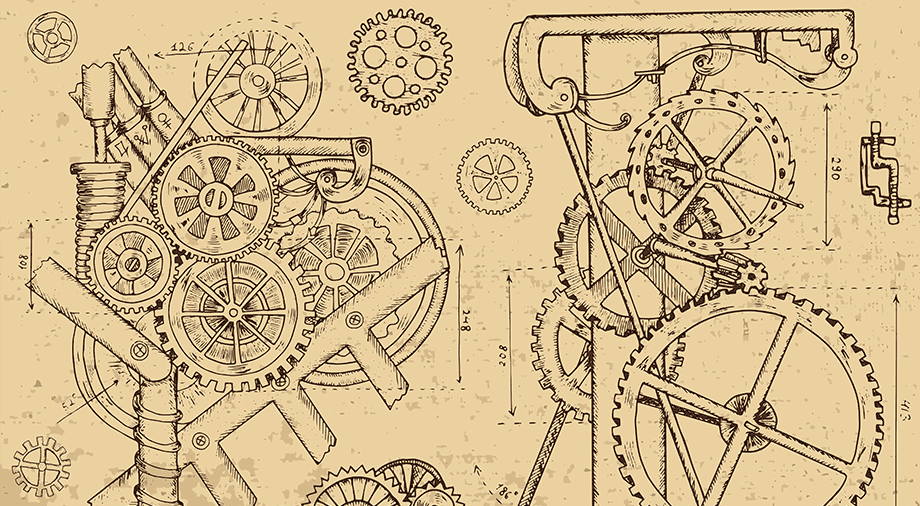[A brief clarification: in what follows, “mechanism” proper refers to physics, a logical form of causality and explanation which conceives of its object as indifferent and accounts for interaction through the communication of external determinations. Chemistry is a slightly more elaborate logical form, which allows for the bare minimum of internal determination and reference to an other, and thus notions like charge, tension, etc. They are typically contrasted with teleology and/or life.]
There is a popular way of trying to overcome the reduction of all causality to mechanism (loosely, physics or chemistry) which is not satisfactory.
This inadequate mode of refutation is the following. 1) We take mechanical explanation, and its intelligibility, for granted. 2) We lay out, next to this, another possible form of causality (say teleology or life), other than mechanism (sometimes only defined by its not being mechanism). 3) We attempt to show, empirically, that there are things which in fact exist which cannot be explained by mechanism and thus fit into this other category.
This way will not ultimately satisfy as a refutation. Why? Well for one thing mechanism seems to have this advantage over teleology (so understood as another kind of explanation/causation, one among others): universality.
Physics/chemistry can, it seems, be applied to all things (they do recur even in the explanations we give of organisms, even if). So long as mechanism appears to be a form causation/explanation which can, logically, be universalized, there will always be a temptation to do so. Especially since it seems that teleology/life (as commonly conceived, at least) is not a form of causation or explanation which applies to all things. Mechanism in this sense has a logical advantage. One can always argue, as people do, that in the end a mechanical explanation can be developed for what seems irreducible.
Even if it has been rigorously shown that there is a structure which is logically irreducible to mechanism, the temptation will be felt.
We must do better than this. We must not merely point out exceptions, and thus demonstrate that another form of explanation/causality also exists.
We must show that the attempt to universalize mechanical explanation—precisely as the form of intelligibility it is—undermines itself. Here I will merely sketch a refutation which is given at length by Hegel in The Science of Logic, in the sections Mechanism and Chemism and their transition into Teleology and Life.
Why does reductionism fail? Not merely because there happen to be, we find, things which aren’t mechanical, but because the idea of mechanism, in universalizing itself, collapses. An exhaustive description of states, and even the stipulation of causal relations, is not yet *explanation*.
Mechanism can only be thought as a totality by introducing notions which are not intelligible mechanically: a mechanical system has a “center” and “a law” and it is in terms of these that mechanical causality can be understood as a form of explanation (and not merely description).
Thus the thought which was mechanical explanation/causality can only be thought intelligibly to be from a standpoint which is beyond it.
That is, we must think life as the truth of mechanism. Not that life also happens to exist, and is in some sense “higher.” No, in the strong sense that mechanism shows itself to be untrue when thought rigorously, and life proves to include mechanism within itself as its own moment.
This is all a matter of logic, and not empirical. Quite apart from the fact that we happen to find living beings which resist mechanical explanation, the very logical form of intelligibility which is mechanism reveals itself as contradictory or untrue. Conversely, the logical form of intelligibility which is life shows itself to be the truth of mechanism, which is defined by its ability to sustain—to be—the contradiction into which mechanism fell. Life is the regress of mechanical explanation thought as self-return.
In all that precedes, I follow Hegel’s refutation, as Sebastian Rödl reads it. It is one which is an immanent critique of mechanism. It is one which is logical rather than empirical. It is one which does not place two forms of explanation side by side, but asks the question of which shows itself to be the truth of the other.





"An exhaustive description of states, and even the stipulation of causal relations, is not yet *explanation*."
I have some trouble understanding this part. For a materialist, isn't the whole point that if you start with a set of initial conditions, you can predict/describe all events following from that point onwards, and thus also explain those events (because they are shown to be merely deterministic states following one another). What is wrong in my thinking here? Or, what is the definition of "explanation", that what I said here is not enough to be considered an explanation?